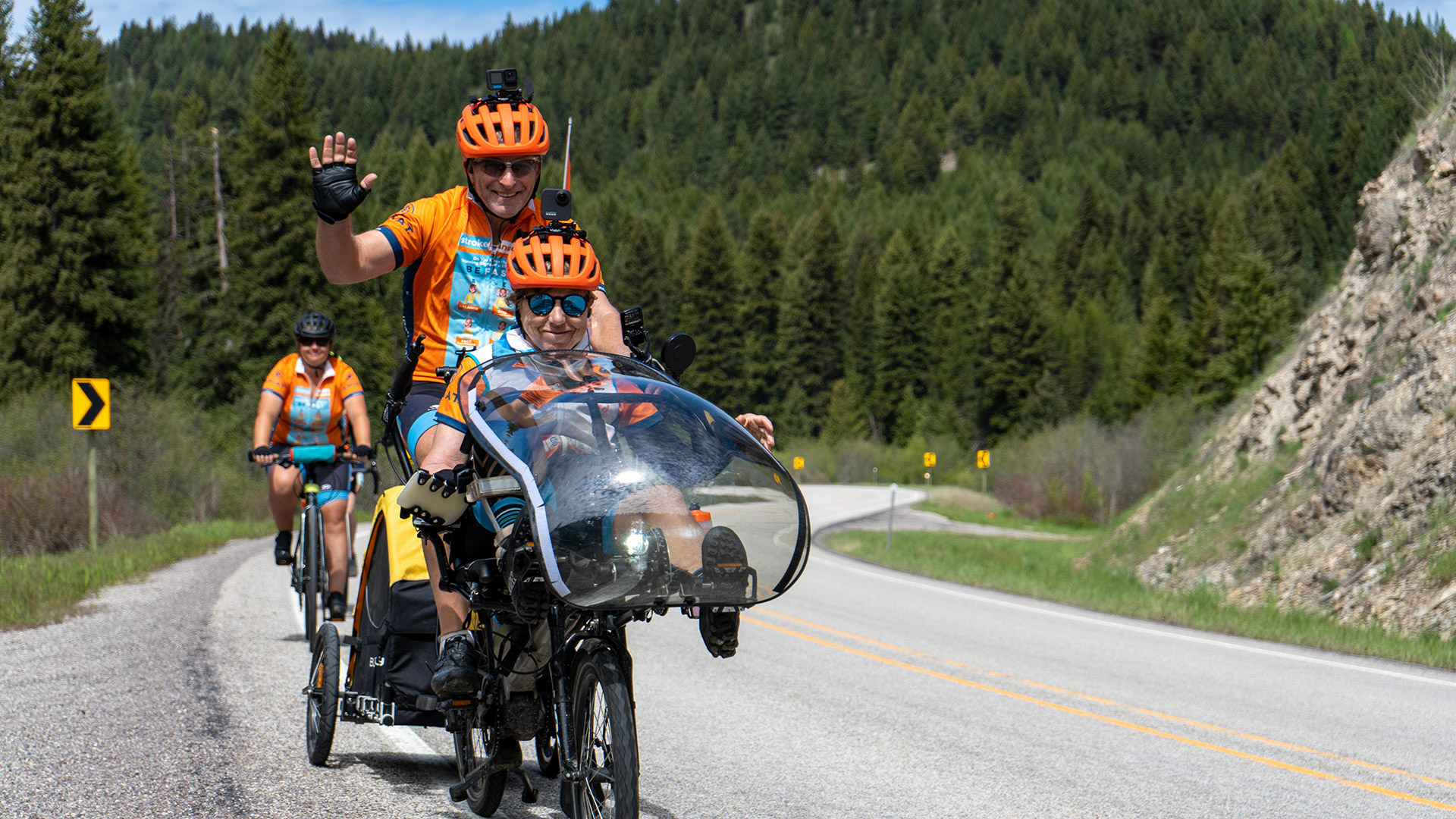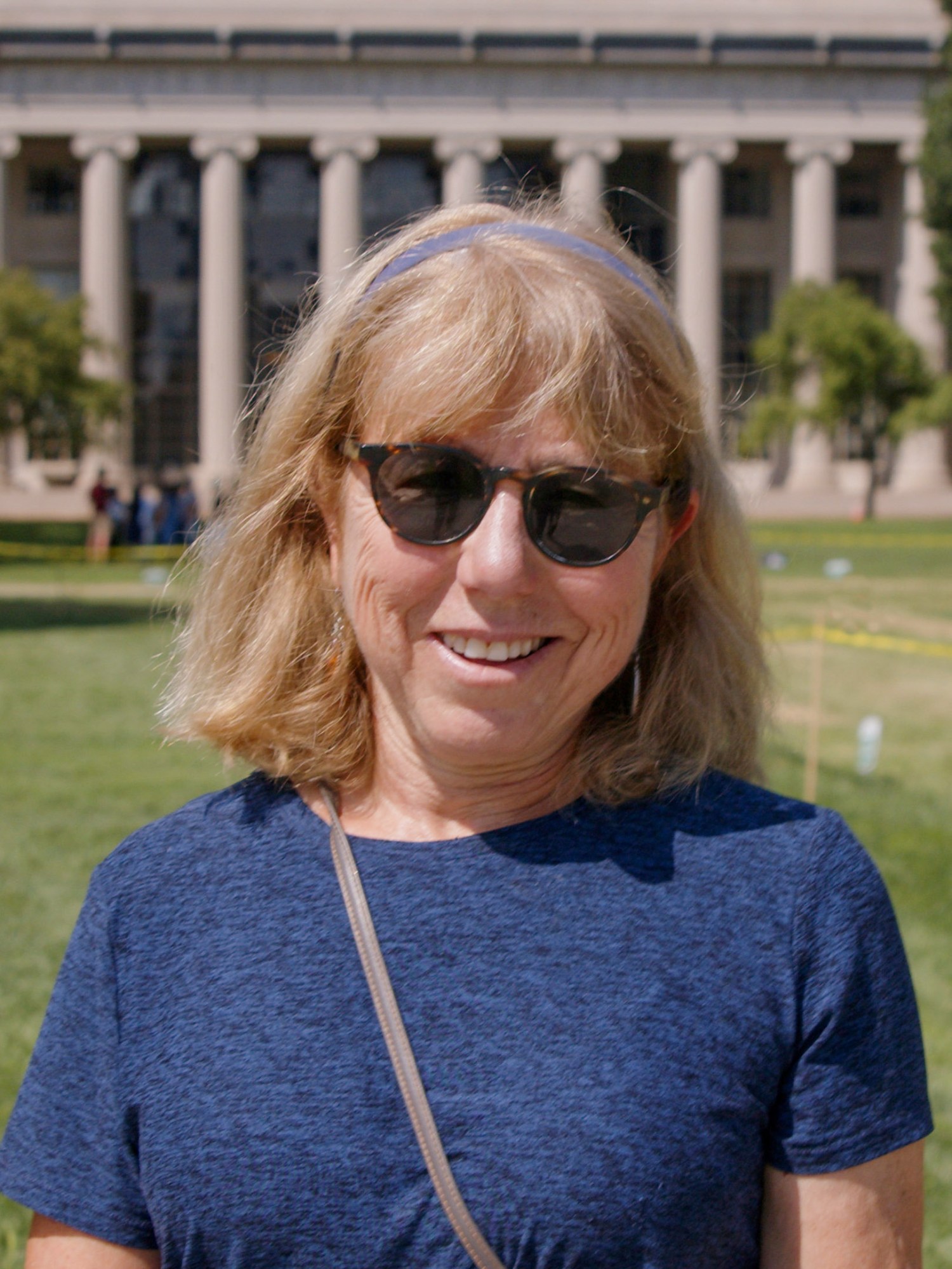Why this stroke survivor biked 4,500 miles across the US
Debra Meyerson ’79, SM ’80

After a stroke in 2010, Debra Meyerson ’79, SM ’80, was paralyzed on the right side of her body and needed months of speech therapy before she was able to produce even the simplest of words. Today, she’s speaking out about stroke recovery—especially the mental health and emotional aspects of healing, which she says don’t receive enough support from the health-care system. Last summer she led a team of cyclists on a cross-country trip to bring attention to this cause.

A tenured professor of organizational behavior at Stanford University at the time of her stroke, Meyerson was determined to regain everything she had lost. While she saw great improvements in her walking and speech, the stroke left her with aphasia, a condition that causes speech impairment.
As a result, Meyerson realized she wouldn’t be able to resume her former role in the classroom, where she had focused on gender and diversity. That disappointment led her to write a book—Identity Theft: Rediscovering Ourselves After Stroke, released in 2019.
“The emotional journey is so important, and there’s not enough emphasis placed on that,” says Meyerson, who earned bachelor’s and master’s degrees in management at MIT before completing her PhD at Stanford. “Recovery is more than rehabilitation.”
Working on her book helped Meyerson navigate her own personal identity crisis, she says. Given her challenges with aphasia, she had help writing it—from her husband, Steve Zuckerman, writer Sally Collings, and her three kids. Her eldest son, Danny Zuckerman, served as coauthor. The book details her own experiences and includes academic research and the stories of 25 other people recovering from a stroke or similar condition. In documenting them, she recognized a common thread. “None of the people we interviewed had been given any guidance for the emotional journey of rebuilding identity,” explains her husband, who helps when aphasia prevents her from finding words. “We talk a lot about purpose, and addressing that gap in the system became Deb’s purpose.”
Meyerson, now an adjunct professor at Stanford, knew there was more work to be done, so she and Zuckerman started a nonprofit called Stroke Onward to raise awareness and promote change in the medical model for stroke recovery. The 4,500-mile ocean-to-ocean bike ride across the US in the summer of 2022 was their latest effort. Family, friends, and fellow stroke survivors joined them for some or all of the trip.
“MIT taught me big things [are] possible,” Meyerson says.
Keep Reading
Most Popular
Large language models can do jaw-dropping things. But nobody knows exactly why.
And that's a problem. Figuring it out is one of the biggest scientific puzzles of our time and a crucial step towards controlling more powerful future models.
The problem with plug-in hybrids? Their drivers.
Plug-in hybrids are often sold as a transition to EVs, but new data from Europe shows we’re still underestimating the emissions they produce.
Google DeepMind’s new generative model makes Super Mario–like games from scratch
Genie learns how to control games by watching hours and hours of video. It could help train next-gen robots too.
How scientists traced a mysterious covid case back to six toilets
When wastewater surveillance turns into a hunt for a single infected individual, the ethics get tricky.
Stay connected
Get the latest updates from
MIT Technology Review
Discover special offers, top stories, upcoming events, and more.